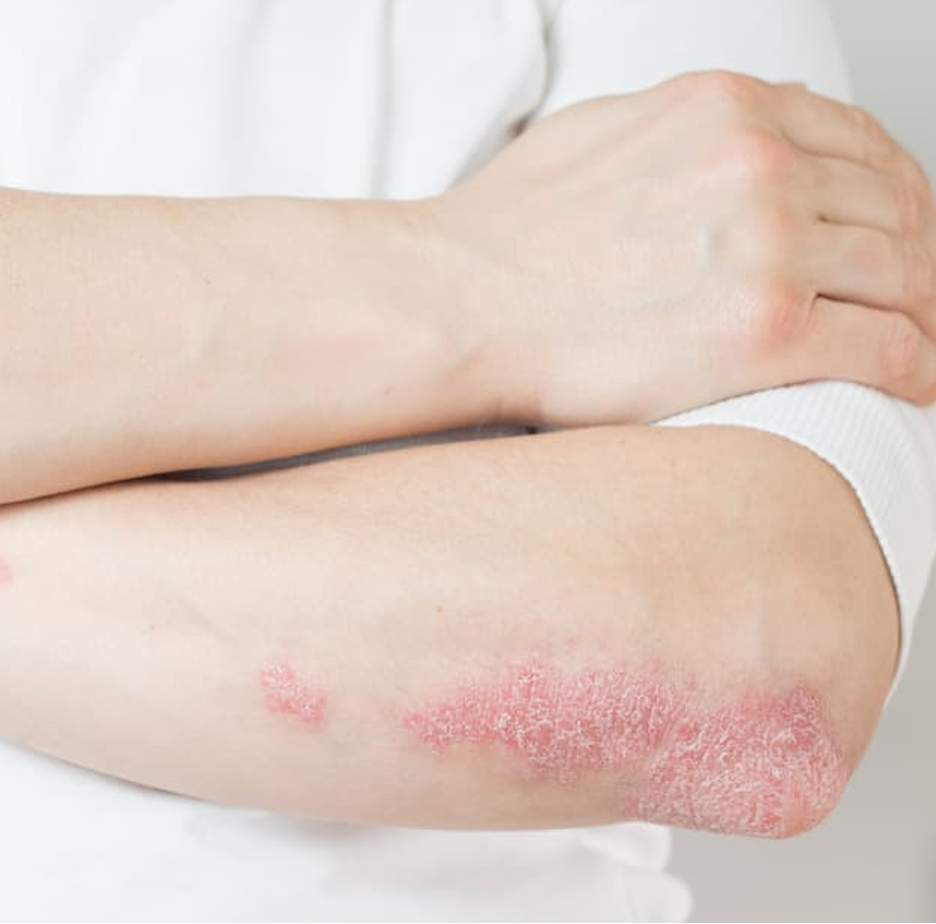Article
Treating PsA in Older People: A Need for Data
Psoriatic arthritis is a complex, understudied condition in older people who need more effective treatments.
Stiffness, joint pain and back aches are common complaints as people age and are a frequent reason for doctor visits. But when a patient over 60 years old has a history of psoriasis, joint problems could be a sign of psoriatic arthritis. While biologics have been shown to be effective in treating some older patients with rheumatoid arthritis, there is little clinical trial data on outcomes in this population with other forms of arthritis, including psoriatic arthritis.[[{"type":"media","view_mode":"media_crop","fid":"41140","attributes":{"alt":"©JPC-PRODShutterstock.com","class":"media-image media-image-right","id":"media_crop_1481406162492","media_crop_h":"0","media_crop_image_style":"-1","media_crop_instance":"4294","media_crop_rotate":"0","media_crop_scale_h":"0","media_crop_scale_w":"0","media_crop_w":"0","media_crop_x":"0","media_crop_y":"0","style":"font-size: 13.0080003738403px; line-height: 1.538em; float: right;","title":" ","typeof":"foaf:Image"}}]] A May 2015 report in the journal Joint Bone Spine, attributes the lack of clinical trials in older people to the frequency of comorbidities and other factors related to aging. Led by Martin Soubrier of Hopital Gabriel Montpied of France, the authors wrote that age is a risk factor for many comorbidities, which can make clinical studies difficult to interpret 1. “Prospective control and cohort studies strive to have a homogeneous study population and therefore often exclude elderly subjects and thus select volunteers with fewer comorbidities compared to a global population of patients at the same age. This selection compromises the extrapolation of results to the real life elderly,” Soubrier and colleagues wrote. The Age Factor Psoriasis can precede psoriatic arthritis in 60-80% of people by 10 to 20 years, and studies suggest that its incidence has been increasing. The disease is more common before 40 years old, but its peak age of onset is actually 57 to 60 years2. After 60 years old it is called “elderly onset psoriatic arthritis.” While some older patients might exhibit arthritic symptoms at first, older onset psoriatic arthritis can have more severe onset and more destructive outcomes. Acute injuries, such as falls, are associated with an increase in the risk for psoriatic arthritis. Compounding the problem, psoriatic arthritis is associated with a higher risk of high blood pressure, elevated cholesterol, type 2 diabetes and cardiovascular events, which are comorbidities that increase with age, Soubrier and colleagues wrote. Additionally, mortality from comorbidities is more common in older adults. While psoriatic arthritis affects men and women equally, women more commonly develop a symmetrical polyarthritis that resembles rheumatoid arthritis, with higher joint counts and greater disability. Treatment in Late Onset PsA Acute onset has been reported in one-third of all patients.Biological drugs such as the new interleukin-17 antagonist secukinumab (Cosentyx), the oral phosphodiesterase4 (PDE4) inhibitor apremilast (Otezla), and the PEGylated Fc-free anti-tumor necrosis factor certolizumab pegol, have been shown to be effective in treating psoriatic arthritis in recent late-stage clinical trials. Apremilast is approved for psoriatic arthritis, as is ustekinumab (Stelara) and other TNF drugs. However, secukinumab and certolizumab have not yet been approved by the FDA. Some take-a-ways from the Soubrier report “Pharmacological management in the elderly necessitates assessment of the benefit/risk balance by giving greater weight to comorbidities, potential side effects and drug interactions. “The most recent literature data, although only partial, confirm that the benefit/risk balance barely declines with age. “The reluctance to use bDMARDs in the elderly, from fear of side effects, paradoxically means that these patients are exposed to much more deleterious drugs such as glucocorticoids and NSAIDs. Renewed scientific attention in recent years should promote more widespread use of biologics, however, without diminishing our attention to their safety in these frail populations. “Additional studies on biologics, focusing on the longer term and in indications apart from anti-TNF therapies in rheumatoid arthritis should help overcome some of the reluctance and promote the rational use of these drugs in the elderly." Related Stories on Rheumatology Network
References:
- Lahaye C, Tatar Z, Dubost JJ, Soubrier M. Overview of biologic treatments in the elderly.Joint Bone Spine. May 2015. doi: 10.1016/j.jbspin.2014.10.012.
- Queiro R, Tejon P, et al. Age at disease onset: a key factor for understanding psoriatic disease.Rheumatology. Nov. 22, 2013. doi:10.1093/rheumatology/ket363

Real-World Study Confirms Similar Efficacy of Guselkumab and IL-17i for PsA




